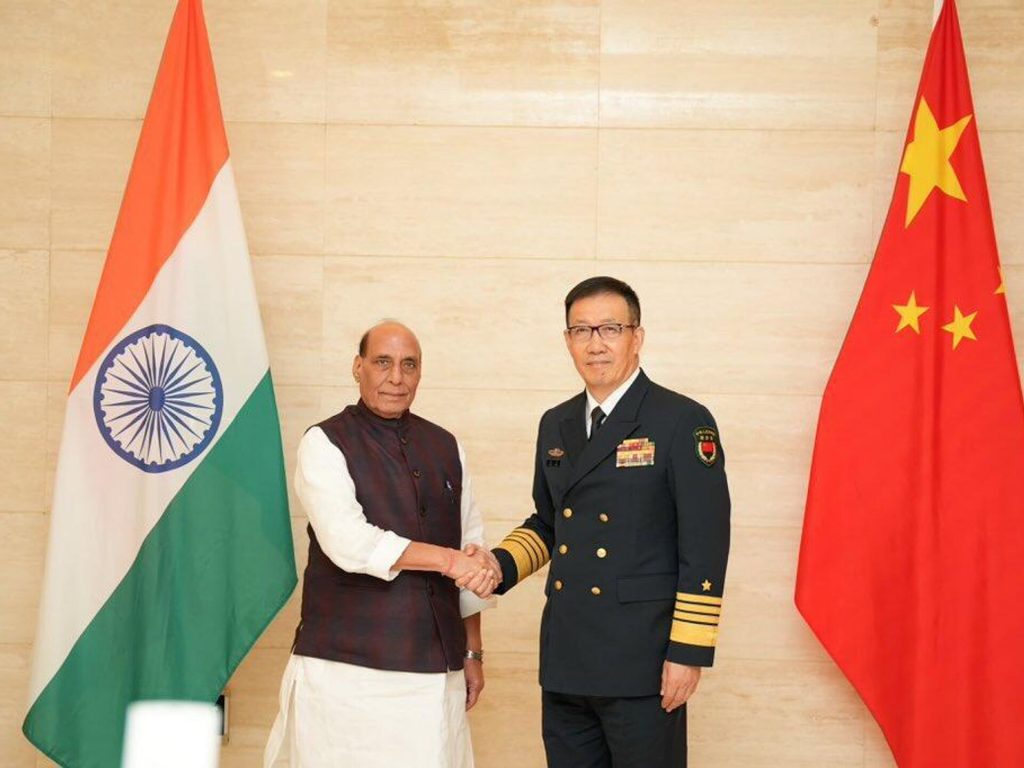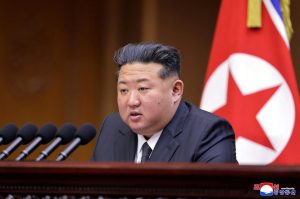Chinese Ministry of National Defense: Chinese and Indian defense ministers hold bilateral meeting

“Ministry of National Defense Release” released a message on the 26th that Defense Minister Dong Jun met with SCO Secretary-General Yermekbayev, Uzbek Defense Minister Kharmukhamedov, Kazakh Defense Minister Kosanov, Tajik Defense Minister Sobirzoda, and Indian Defense Minister Singh who came to China to attend the meeting in Qingdao on the 26th.
According to the news, Dong Jun said that the SCO is an important force in practicing true multilateralism and maintaining global strategic stability. This meeting conveyed to the international community the determination and confidence of all member states to adhere to the “Shanghai Spirit” and deepen unity and cooperation. It is hoped that all parties will work together to implement the consensus of the meeting, jointly respond to the serious impact of unilateralism, protectionism, and hegemonism, and inject more certainty and positive energy into regional prosperity and stability. China is willing to work closely with the defense departments and armed forces of all member states to promote new progress in defense and security cooperation and contribute to building a closer SCO community of shared future.
From June 25 to 26, the meeting of defense ministers of the Shanghai Cooperation Organization member states was held in Qingdao. Singh attended the meeting. Indian media said that Singh was the first Indian defense minister to visit China since the Sino-Indian border standoff in 2020. Singh’s visit to China indicates that both sides are cautiously optimistic about easing the situation and dialogue.
On the afternoon of the 26th, a reporter from the Global Times saw Indian Defense Minister Singh arrive at the Qingdao International Conference Center. The bilateral meeting between China and foreign parties was held here.
According to the news released by the Ministry of National Defense, Singh said that India and China are neighbors that cannot be moved away and have a long history of exchanges. India does not seek conflict and confrontation with China, and is willing to properly handle differences with China, enhance exchanges and mutual trust, and promote the continued positive development of bilateral relations.
Qian Feng, a researcher at the National Institute of Strategic Studies of Tsinghua University, said in an interview with a reporter from the Global Times on the 26th that Singh’s participation in the meeting itself sent a positive signal, indicating that India recognizes the dialogue value of the SCO framework, reflects respect for the host country, and sends a signal to continue to improve Sino-Indian relations.
In addition, in response to the Indian media’s claim that “India has refused to sign the joint statement of the SCO Defense Ministers’ Meeting because the two sides have differences on issues related to terrorism.” On the afternoon of the 26th, the Ministry of National Defense spokesman Colonel Zhang Xiaogang refuted at a regular press conference, saying, “As far as I know, with the joint efforts of all parties, this SCO Defense Ministers’ Meeting was a complete success.” In this regard, Qian Feng said that as a regional multilateral cooperation mechanism, the Shanghai Cooperation Organization has always adhered to the “Shanghai Spirit” of equal consultation and mutual benefit and win-win. Its core value lies in providing a platform for member states to build consensus and deepen cooperation, and providing member states with incremental space for strategic mutual trust. “The differences between India and Pakistan have a long history and are well known. Other SCO member states, including China, have always called for resolving differences through bilateral channels or existing mechanisms to benefit regional peace.” Qian Feng said. Qian Feng further analyzed that although some Indian media unilaterally claimed that they refused to sign the joint statement due to “terrorism differences”, they ignored the fact that the SCO is a platform for building multilateral consensus, not an occasion to resolve specific bilateral differences between India and Pakistan. He said, “China’s clear response once again demonstrated the ability of the SCO mechanism to transcend bilateral differences and focus on multilateral cooperation.”
![]()







